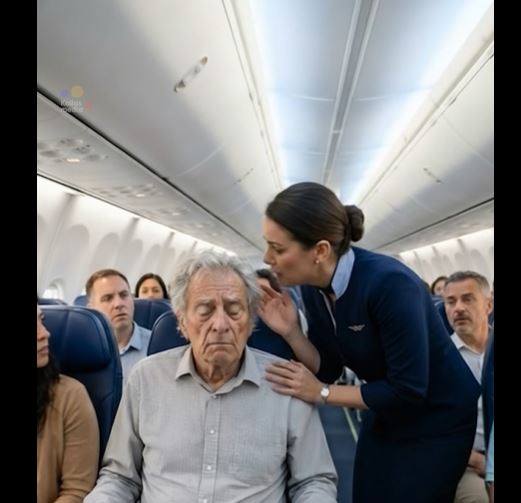It was a quiet Tuesday morning when Officer Mark Reynolds was dispatched to a small convenience store on the outskirts of town. Reports of a suspected shoplifter had come in, and he was the first available officer.

When he arrived, he spotted a woman leaving the store with a small bag. She matched the description from the call: mid-thirties, brown hair, wearing a dark jacket. Without hesitation, he approached her.
“Ma’am, I need to talk to you about that purchase,” he said.
The Mistake
Inside the station, it became immediately clear that a mistake had been made. The woman was Deputy District Attorney Lisa Carter, a respected public servant known for her dedication and integrity.
She had been shopping for breakfast items before heading to the courthouse for a hearing. Her badge, wallet, and ID confirmed her identity but the minor differences in description had led to her wrongful arrest.
Mark’s stomach sank as he realized the gravity of the situation. He had arrested a fellow public official someone who not only upheld the law but also prosecuted cases where he had once been called to testify.
The department quickly released her and offered apologies, but the incident could not simply be erased.
Facing Her in Court
Two weeks later, fate put Mark and Lisa in an unexpected situation. Mark was called as a witness in a separate criminal case at the same courthouse where Lisa was serving as the prosecuting attorney.
The courtroom buzzed as Lisa entered, poised and confident. She approached the bench, papers in hand. Across the aisle, Mark felt the weight of the previous incident heavy on his shoulders.
The judge called the session to order, and as the proceedings began, Mark realized that this was more than just a legal formality it was an opportunity to restore respect and accountability.
Lisa, without showing anger or resentment, maintained professional composure. She acknowledged the error with a brief mention at the start of the proceedings, ensuring it did not derail the case.
The Conversation
During a short recess, Lisa approached Mark privately.
“I hope you understand the seriousness of what happened,” she said, her tone firm but calm.
“I do,” Mark replied, his voice low. “It was a complete mistake. I followed protocol, but I realize now how it should have been handled differently.”
Lisa nodded. “Mistakes happen, Officer Reynolds. But handling them with respect and accountability is what matters.”
That brief conversation changed the dynamic entirely. The tension melted, replaced by mutual understanding. Mark left the courthouse with a new perspective — one that reminded him of the responsibility inherent in law enforcement.
Public Reaction
News of the mistaken arrest had already circulated locally, and the courthouse encounter renewed public interest. Social media users debated, commented, and shared opinions — some critical of police procedures, others praising Lisa’s professionalism.
Articles highlighted the irony: the very officer who had arrested a public prosecutor by mistake was now appearing in her courtroom for an unrelated case. Many noted Lisa’s calm and composed response, emphasizing the importance of maintaining professionalism despite personal grievances.
Mark’s colleagues discussed the incident in training sessions, using it as a case study in proper verification and respectful handling of citizens, even in high-pressure situations.



